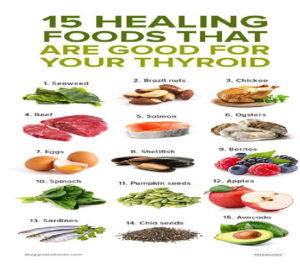Introduction
The thyroid gland produces thyroxine which is imperative for regulating body metabolism. It is a butterfly-shaped gland just below Adam’s apple & towards the front region of the neck. It is a worldwide health problem these days. The thyroid is responsible for regulating the metabolism in the body. In some cases, the gland fails to regulate the systemic metabolism, so it gives rise to thyroid abnormalities. It can be either hypothyroid or hyperthyroid disorders. The clinical manifestations can range from small harmless enlarged goiter to terminating illnesses like thyroid cancer. Globally 200 million people are affected by thyroid abnormalities. Women are more prone to develop & it is the commonest endocrine disorder prevalent in India.
Thyroid hormone production can be too much & can lead to hyperthyroidism. An insufficient supply of hormones can lead to hypothyroidism. These conditions can create a lot of bodily abnormalities. If the conditions are timely intervened, they can be managed with ease.
Types
Hypothyroidism
The gland makes insufficient hormone & leads to hypothyroidism. This is a highly prevalent thyroid abnormality in the global population. Hashimoto thyroiditis is the common cause of hypothyroidism. It is an autoimmune dysfunction that leads to the stoppage of gland function. Symptoms can vary in individuals ranging from weight gain, fatigue, dry skin & even constipation. It is not obvious that all of the symptoms of thyroid abnormalities can be seen in one person. It is treated by taking the hormone externally as a medication.
Hyperthyroidism
Sometimes the gland becomes overactive & produces too much hormone. The causes usually include Graves’ disease, which is another autoimmune disorder that causes the gland to produce more hormones. There are also other conditions like nodules in the gland which may cause high hormonal production & secretion. The symptoms include fatigue, weight loss, diarrhea or watery stools, nervousness, sweating & increasing heart rate.
Ayurveda perspective
Ayurveda focuses on the constitutional dosha predominance of a disease when it comes to management. Naming a disease is less important more emphasis is laid on the doshas involved & the various external/internal attributes of the patient. Agni or the metabolic fire is required for all bodily metabolism. The vitiated Agni causes ama dosha in the body channels. It causes abnormalities in the thyroid gland. Vata Kapha’s vitiation symptoms are attributed to hypothyroidism. Vata – pitta vitiation symptoms are similar to hyperthyroid symptoms. The body channels are not spared in thyroid dysfunctions. The rasa, rakta, mamsa, medo, sukra vaha srothas are very much involved. It again depends upon the Agni vitiation. In hypothyroidism, symptoms like fatigue, hair loss, dry skin, joint pain, mental instability, menstrual abnormalities, constipation, are associated with the Vata vitiation. The Kapha symptoms like lethargy, sleepiness, & hoarseness are also produced. Decreased Agni, as well as increased Vata-Kapha, are responsible for the above symptoms in hypothyroidism.
Management according to Ayurveda
Ayurveda follows a holistic approach, unlike other medical systems. There are potent herbal formulations, dietary recommendations & lifestyle modifications that can improve the condition of the individual. It is mandatory to understand the dosha base, severity of the disease, strength of the patient & the external factors. Depending upon the constitution or the Prakriti of the patient & the disease the treatment is designed accordingly. In hypothyroid condition, Vata -Kapha pacifying therapies are followed. Varanadi kashayam, kanchanara guggulu , ashwagandha are advised. Other medicines are taken depending upon the need. Along with the internal medications, external udwarthana for weight loss & oleation therapies are best recommended. The detox therapies are advised if there is very high dosha vitiation. Similar treatment protocols are not followed in different individuals. It is necessary to start the treatment with the expert opinion of an Ayurveda physician for promising results.
In hyperthyroidism, Vata – pitta pacifying herbs are emphasized. Thriphala guggulu, vidaryadi kashayam, punarnavadi gugulu, nimba, Chandan, etc. are the commonest herbal remedies. For nervous symptoms, Brahmi, jatamansi are also advised. All these are effective when there are dietary changes & lifestyle modifications.
Stress should be avoided to achieve a faster recovery. For mental well-being, yoga, meditation, pranayama, surrounding with positive people, & regular physical activity are usually advised.
Surya namaskar, matsyasana. Sarvangasana, & halasana, are found very effective.
Meditation or any form of mental relaxation techniques can be followed during the treatment. This will accelerate the medicinal action.
Avoid
- Tea, coffee, alcohol
- Broccoli, spinach, cabbage, soybean,
- Processed foods like cookies, hotdogs, tinned foods
- Artificial soda drinks
- Pizza, fries, burgers, cheesy snacks
Dos
- Iodised salt
- Green leafs rich in magnesium
- Brazil nuts, pumpkin seeds, chickpeas, almonds are iron-rich
- Kinds of seafood sardines, salmon
- Avocado, apple, berries
- Organ meats like liver, heart, kidney
- Chicken, eggs

Early identification of thyroid disorders can ensure good treatment results. It is necessary to check if any of the symptoms persist, & seek medical advice accordingly. It is required to have proper diagnostic tests done under expert supervision.

 Call Now +91 9423 422 379
Call Now +91 9423 422 379